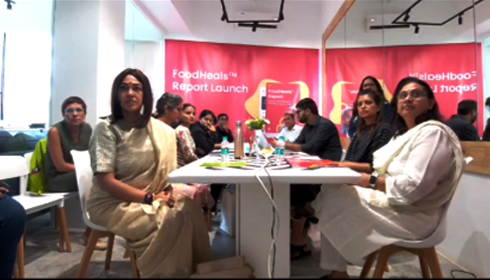
Malnutrition in Childhood Cancer: The Silent Battle No One Talks About – Cuddles Foundation's 'Food Heals' Report Reveals Heartbreaking Gaps
As the nation observes Childhood Cancer Awareness Month, which falls in September the Cuddles Foundation, a nonprofit organisation dedicated to providing nutritional support to disadvantaged children with cancer, has produced its most recent report, Food Heals: Exploring Nutritional Aspects of Childhood Cancer in India. The report emphasizes the critical importance of nutrition in pediatric oncology care, highlighting a long-standing issue: malnutrition is one of the most significant barriers to effective cancer therapy for children in India.
The scope of the problem is frightening with approximately 76,000 children in India receive a cancer diagnosis each year. According to the Cuddles Foundation's assessment, a large proportion of these children—between 57% and 61%—are malnourished at the time of their first nutrition consultation. This frightening trend has been unchanged over the past three years. Undernourished children have a lower tolerance for cancer treatments, which leads to more problems, infections, and, ultimately, poorer treatment outcomes.
Purnota Dutta Bahl, the founder and CEO of Cuddles Foundation, stated, "The findings of the Food HealsReport 2024 emphasise a terrible reality—malnutrition remains one of the most significant issues in paediatric cancer care. We urgently need to address the scarcity of professional nutritionists, invest in training, and prioritise nutrition as an essential component of cancer treatment."
According to the survey, 65% of newly diagnosed paediatric cancer patients consume less than half of the calories and protein required for good development. This nutritional deficiency severely limits their ability to endure cancer therapies, raising infection rates and impeding growth and healing.
The report emphasises the integration of nutritional support into all stages of cancer treatment, from diagnosis to recovery, while acknowledging the necessity of medical therapies. Dr. Manas Kalra, Senior Consultant at Sir Ganga Ram Hospital in New Delhi, underscored the significance of this comprehensive approach, stating that nutritional care, often overlooked in paediatric oncology, plays a crucial role in improving treatment outcomes for these young patients. Medical treatments are more effective when combined with proper food consumption.
The findings are consistent with observations made by other healthcare practitioners. Dr. Vinod Gunasekaran, Senior Consultant of Paediatric Haematology Oncology & BMT at Kauvery Hospital in Trichy, emphasised the difficulties children experience when dealing with both cancer and hunger. "Nutrition-focused interventions have significantly improved these children's treatment tolerance and compliance." Dr. Gunasekaran stated that due to the nutritionists' multiple advice and guidance, parents feel secure and comfortable about how to feed their children while on therapy.
One of the report's most significant findings is the critical shortage of specialised nutritionists in Indian hospitals. In certified cancer hospitals, the nutritionist-to-patient ratio is 1:54, whereas in non-accredited facilities, it is 1:407. This difference emphasises the critical need for increased investment in nutrition services and training healthcare staff in paediatric oncology nutrition. According to experts, an optimal ratio would be 1:25 to ensure that children undergoing cancer treatment receive personalised and frequent nutritional assessments.
In response to a question from Drug Today Medical Times (DTMT) about India's diverse dietary habits, Ms. Bahl stated, "We design the child's food based on what the parents eat, thereby maintaining food diversity." This method takes into account cultural dietary preferences while meeting nutritional requirements.
Bahl noted that the Cuddles Foundation is actively collaborating with 40 of India's 75 cancer care institutions that specialise in child oncology. Ten of these hospitals are in Maharashtra, with three in Assam, serving the entire northeastern states. The foundation's work across the country emphasizes the geographic diversity of childhood cancer care and the importance of nutrition in all regions.
The Food Heals report urges immediate action to address the nutritional needs of children with cancer. It calls for increased financing, professional nutritionist training, and more effective integration of Nutrition Care Processes (NCP) into paediatric oncology care. These modifications would enable more personalised nutrition therapies, considerably enhancing treatment outcomes and long-term health prospects for these young patients.
Reflecting on the findings, Ms. Bahl said, "With increased awareness and government and public support, nutrition can be one less worry for cancer families." Together, we can ensure that no kid loses their battle due to inadequate nourishment."
As India continues to battle with an increasing number of juvenile cancer cases, the Cuddles Foundation's Food Heals study serves as a rallying cry for increased emphasis on the often-overlooked role of nutrition in cancer therapy. With coordinated efforts from the government, healthcare professionals, and such voluntary organisations, there is hope that malnutrition will no longer jeopardise the fight against childhood cancer.